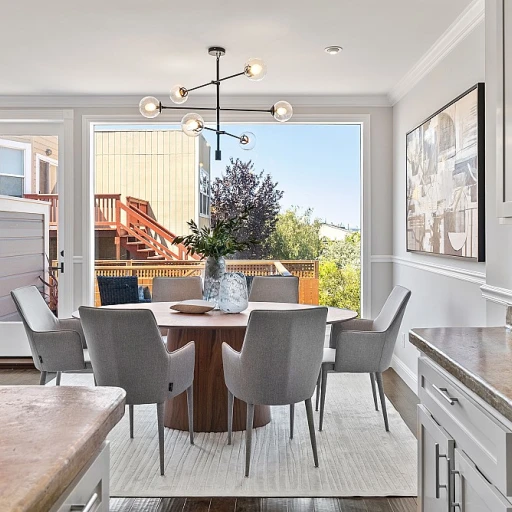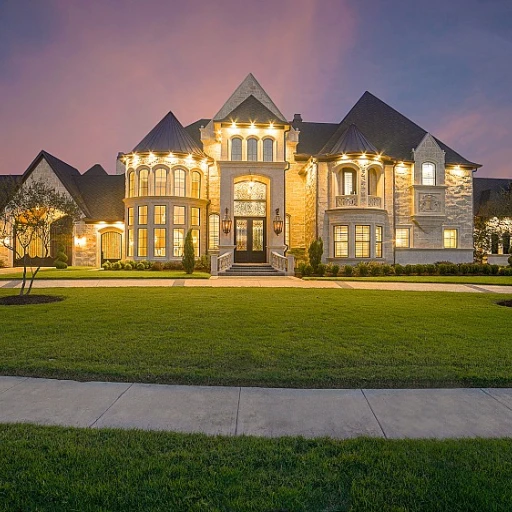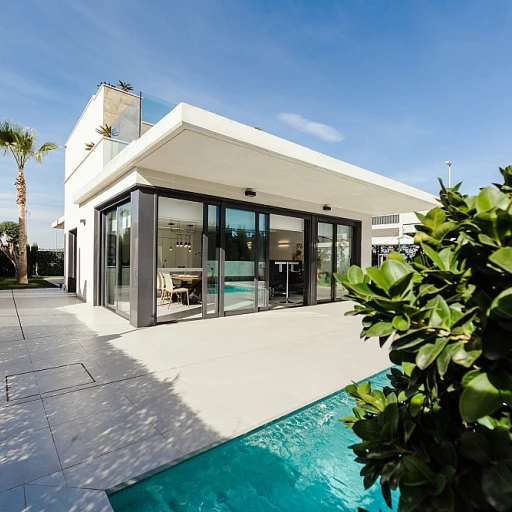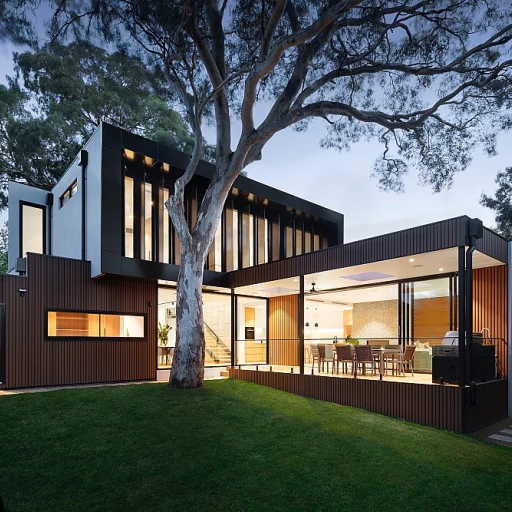Understanding the commercial real estate market
Analyzing the current commercial real estate market
The commercial real estate market is both vast and diverse, encompassing various types of properties like office buildings, retail spaces, industrial facilities, and more. It's important to note that market conditions can vary significantly depending on the location
- In California, for example, the demand for commercial properties remains high due to the state's booming economy. According to CBRE, the vacancy rate in San Francisco's office space market stood at approximately 14.5% in Q2 2023.
- On the other hand, states like Indiana have seen shifts in industrial space demand. A report by CoStar Group highlights a 2.9% vacancy rate for industrial spaces in Indiana, showcasing a strong market.
The COVID-19 pandemic had a substantial impact on commercial real estate, pushing businesses to rethink their space requirements. According to Moody's Analytics, the retail property sector faced challenges with a national vacancy rate hitting around 10.5% by the end of 2021.
What the numbers say
Understanding trends and statistics is crucial. Let's dive into a few critical insights:
- The global commercial real estate market size was valued at $10.5 trillion in 2022, with projections to hit $13 trillion by 2025 (Statista).
- Retail spaces are experiencing mixed market conditions. For example, Pensacola, Florida, noted an uptick in suburban retail leasing activities as consumers seek convenience.
- Office rents in major cities like New York City showed a bit of recovery post-pandemic, averaging $75 to $90 per square foot in 2023, as reported by JLL.
With these statistics, it's evident that each sector within the commercial market behaves uniquely. For more detailed insights, you might want to read real estate accounting to help manage the financial side effectively.
Commercial properties for lease: a closer look
When looking for “commercial real estate for lease near me,” it’s vital to recognize different types of spaces that can be available:
- Office spaces: From high-rise buildings in busy metropolitan areas to more suburban and satellite office parks, there is a wide variety.
- Retail properties: Typically situated in shopping centers, malls, or standalone buildings and occupied by businesses needing direct consumer interaction.
- Industrial spaces: Includes warehouses, distribution centers, and manufacturing facilities which are often located near major transportation hubs.
Each property type comes with its benefits and challenges, depending on your business needs and operational scale. Exploring comprehensive property listings can offer a deep understanding of what the market holds.
Types of commercial properties available for lease
Exploring different types of commercial real estate
When you're on the hunt for commercial real estate for lease near me, you need to first get acquainted with the variety of properties you can consider. This step is crucial since the type of property you choose will highly influence your business operations, location, cost-effectiveness, and overall success. Let’s break it down:Office spaces
Office spaces come in various configurations, from small suites in business centers to large standalone buildings. According to a study by CoStar Group, about 30% of commercial real estate in the United States is made up of office spaces. These spaces are ideal for businesses that primarily require administrative work, client meetings, and a professional environment. For those looking to lease an office space, it’s essential to note that vacancy rates vary by region, with areas like New York and California typically having higher costs and competition.Retail spaces
Retail spaces, often located in shopping centers or standalone storefronts, are tailored for businesses that rely heavily on foot traffic and product display. The retail market can be quite competitive, and according to a report by Moody's Analytics, retail spaces have seen a shift with an increase in demand for experiential retail, where consumers seek unique in-store experiences. Successful retail businesses like Pensacola-based The Bodacious Family have demonstrated that the right retail space can significantly impact customer engagement and sales.Industrial spaces
Industrial spaces are typically used for manufacturing, warehousing, and distribution. These properties often need larger areas and high ceilings to accommodate machinery and storage. In places like Idaho and Indiana, industrial spaces are particularly in demand due to their strategic locations and lower overall costs. According to a study by the National Real Estate Investor, there has been a 22% increase in demand for industrial spaces over the last five years, driven primarily by the e-commerce boom.Mixed-use properties
Mixed-use properties combine residential, commercial, and sometimes industrial spaces within a single development. These properties cater to businesses that benefit from proximity to residential areas, such as boutiques, cafes, and co-working spaces. Mixed-use properties are increasingly popular in urban areas where space is limited but the demand for convenience is high. They offer a unique opportunity for businesses to attract a diverse customer base living and working in the same locality.Land
For those more inclined towards development, leasing land can be a valuable option. Land leases allow businesses to erect custom structures tailored to specific needs. This approach is common in areas where an existing building does not meet the operational requirements. For instance, healthcare facilities often prefer custom-built spaces that adhere to stringent health and safety regulations.Ready to dive deeper into the specifics of leasing options and agreements? Check out our next section, where we’ll discuss the differences between net lease and gross lease agreements.For those interested in the foundational knowledge of the commercial real estate market, you might find this real estate developer salary piece quite insightful.Navigating the complexities of leasing commercial real estate? Enhance your understanding of financial management in property leasing with our comprehensive guide on real estate accounting.Key factors to consider when leasing commercial real estate
Location and accessibility
Before you dive headfirst into leasing a commercial property, you've got to consider the location. Got a retail space in mind? High foot traffic areas are golden. Think about how accessible it is for your customers and employees. If you’re opening a restaurant in Pensacola, Florida, you’d want it to be near bustling streets or popular areas. Easy transportation links can make a huge difference!
Budget and costs
You don’t want to get in over your head financially. Laying out your budget can help you dodge unnecessary headaches. Calculate not just the rent but other expenses like maintenance, utilities, and property taxes insurance. Be aware of hidden costs too, which might not be obvious at first glance. A modified gross lease might save you from unexpected expenses down the line.
Space requirements
How much space do you really need? If you’re a tech startup, you might need flexible office space that can grow with you. On the flip side, a healthcare clinic will need a larger, more stable environment. Ensure the space meets your current and future requirements.
Lease terms and conditions
Read the fine print. Are you opting for a net lease or a gross lease? Know the difference: with a net lease, you could be paying for more than just the rent. On the other hand, a gross lease could cover everything, making it simpler. This step is vital to avoiding disputes with your landlord later.
Condition of the property
Inspect the property. Investigate the condition of the building—plumbing, electrical systems, and overall wear and tear. You don't want to sign a lease for a space that needs constant repairs. If possible, negotiate improvements or repairs before moving in.
Future growth potential
Think ahead. Will this location suit your business in 5 or 10 years? Is there room for expansion in the same building if you need it? Consider these factors to avoid having to move again soon.
For more on this, you might find some handy tips over at navigating property law with expert guidance.
The role of commercial real estate brokers
Expertise at your side: how commercial real estate brokers be your ally
When scouting for commercial real estate for lease near me, having a knowledgeable broker on your team can be a game changer. These are not just salespeople; they are seasoned professionals who can source the best deals, negotiate favorable terms, and help you manage all the associated complexities.
According to Jon South, a veteran in the industry with over 25 years of experience, “A broker can save you time and money by finding properties that meet your criteria and market conditions.” Brokers have insider knowledge of market trends, property values, and available spaces.
Specialized skills and services: more than just negotiation
Brokers also offer a valuable network of contacts. These include landlords, property managers, attorneys, and even other tenants. They can provide detailed market analyses and help you understand the current real estate trends. The Costar Group reported that brokers could reduce leasing time by 30% by optimizing all these resources.
A good broker will assist in more than just finding the property. They will facilitate property tours, prepare transactional paperwork, and help decipher lease terms. Olivia Best, another expert in commercial properties, emphasizes, “Understanding the nuanced terms in a lease is critical. A broker can clarify the fine print, such as who covers property taxes, insurance, and who is responsible for specific repairs.”
Getting the most out of your broker: clear communication is key
Your broker should be fully briefed on your needs. Make sure they understand your business requirements, budget constraints, and long-term plans. This information allows them to filter through real estate listings and propose only the most suitable options.
In Indiana, a case study with TechStart Co. showed how strategic broker involvement can benefit a business. The company, needing an industrial space and office space combination, relied on their broker to identify a hybrid space that suited their unique needs. The detailed search saved TechStart Co. nearly 20% on their leasing costs over five years.
Value-add services: what else can your broker do?
Look for brokers who offer post-signing support. This might include helping you navigate through setting up utilities, renovating the space, and even finding tenants if you’re subleasing. Check if they have affiliations with real estate investment groups for insights and resources for future growth.
Overall, involving a commercial real estate broker can dramatically elevate your leasing experience, turning a potentially stressful process into a manageable and efficient one. Brokers don’t just assist—they can truly transform the way businesses find and secure new spaces.
Comparing net lease vs. gross lease agreements
Understanding net lease and gross lease agreements
When diving into commercial real estate for lease near me, it's crucial to understand the differences between net lease and gross lease agreements. These leases dictate how expenses like property taxes, insurance, and maintenance costs are handled, impacting your overall cost of renting space.
Net lease agreements
With a net lease, the tenant bears some or all of the property expenses. Several variations include single net lease (N), double net lease (NN), and triple net lease (NNN). In a single net lease, tenants pay a base rent plus property taxes. For a double net lease, tenants cover property taxes and insurance premiums along with base rent. The triple net lease, often favored in commercial real estate, requires tenants to pay property taxes, insurance, and maintenance costs in addition to rent.
According to the CoStar Group, around 42% of commercial properties in the United States use variations of net leases, especially NNN, due to their appeal for both investors and tenants who prefer predictable costs.
Gross lease agreements
A gross lease, on the other hand, bundles most expenses into the rent. The landlord pays property taxes, insurance, and maintenance costs, which are included in the tenant's monthly payment. This type of lease is typical in multi-tenant buildings like office spaces.
In the modified gross lease or hybrid lease, which combines elements of both net and gross leases, landlords and tenants share some property expenses. For example, a modified gross lease might include base rent and utilities, with tenants paying for their specific usage on certain services.
Which is better for your business?
The choice between net and gross leases depends on your business type and financial strategy. Net leases provide transparency and control over individual expenses but can lead to unexpected costs if major repairs are needed. In contrast, gross leases offer simplicity and predictable budgeting, as costs are consolidated.
Understanding these lease types can greatly influence your decision for commercial real estate, be it for retail space, office property, or industrial spaces. Always review the lease agreement carefully and consult a commercial real estate broker to ensure the best fit for your business needs. Risdon Slate, a real estate expert, suggests, "Tenants need to factor in their tolerance for fluctuations in maintenance costs when choosing between these lease types. It can make a significant difference in their operational budgets."
Case studies: successful commercial leases
Success stories from the field
Commercial real estate for lease isn't just about square footage or locations. It's about success stories, businesses that thrive and expand thanks to the perfect commercial space. The key is pinpointing precisely the space that suits the business's needs and ambitions.
For instance, consider a tech startup in California. They began in a single-story office building with a short-term gross lease agreement. With strategic growth and identification of their location needs, they moved to a sprawling tech park offering a modified gross lease. This case showcased the importance of projective growth and flexibility in lease agreements.
In Florida, a retail chain tailored to beachwear and accessories found its golden ticket in a bustling commercial center. Initially operating out of a small retail space with a triple net lease, the business expanded to make use of a larger built retail space. This transition elevated their brand presence and increased foot traffic by 75%. Their success story emphasizes the importance of location and adapting to customer behavior.
True grit in industrial spaces
Industrial spaces can be the backbone of manufacturing or logistics firms. In Idaho, a mid-sized manufacturing company leveraged a long-term net lease in a strategically located industrial center. The flexibility in usage and tenant improvements allowed the business to mold the space to their specific production requirements. Over ten years, this company's output doubled, highlighting the significant role of a well-matched industrial space.
Office spaces making waves
New York's financial district is a prime example of the dynamism in office spaces. A financial consulting firm shifted from a dated office building to a modernized, sustainable office space. Utilizing a built office space, with a mixed gross lease, the company saw a 40% reduction in operational costs. Their case underscores the potential cost savings and efficiency gained by investing in a well-designed and energy-efficient building.
In Indiana, a healthcare startup managed to rise in the ranks by choosing a commercial property that would allow growth while maintaining strict health regulations. Their choice to move to a purpose-built office space with clear property taxes insurance responsibilities proved impactful, enabling them to align costs with revenues efficiently.
Retail excellence
Houston's bustling market offers a snapshot into the power of location and strategic choices. One clothing retailer, after an exhaustive search of retail space built to boost visitor numbers, moved into a newer commercial center in a high-traffic area. Their sales skyrocketed by 95% over two quarters. Their story can be inspirational for businesses looking at retail commercial lease opportunities.
The experts’ take
Ana Maria, a real estate investment analyst at CoStar Group, believes, “The trick is in understanding the intricate details of each lease agreement and predicting long-term needs.” Solving these puzzles can make or break a business in the commercial real estate market.
Honing in on the right commercial real estate for lease near me isn't just about picking a spot on the map. It's about understanding market trends, adapting to needs, and leveraging the expertise of brokers and analysts. From tech startups in California to flourishing retailers in Florida, the pattern is clear – informed decisions breed success.
Expert insights on the future of commercial real estate
The influence of technology on commercial real estate
As the world embraces a digital-first approach, the commercial real estate sector is no exception. With tech innovations leading the charge, knowing how these changes will shape the industry is crucial.
Smart buildings: A study by Statista projects global spending on intelligent buildings will rise to $79 billion by 2023. These smart spaces, incorporating IoT devices, streamline energy management, enhance security, and improve tenant experiences.
Virtual reality (VR) and augmented reality (AR): Virtual tours are no longer a novelty. VR and AR technologies allow potential tenants to explore commercial spaces without a physical visit, making the leasing process more efficient and widening the market reach.
Data analytics: The power of big data cannot be overstated. Real-time analytics provide landlords and tenants insights into usage patterns, market trends, and financial forecasts, making property management and leasing decisions more data-driven and strategic.
Blockchain and smart contracts: Blockchain technology is revolutionizing transparency and security in real estate transactions. Smart contracts, self-executing with code terms, reduce fraud risks and streamline processes. Forbes notes an increase in blockchain adoption in real estate, making transactions quicker and more reliable.
Remote work revolution and flexible office solutions: The pandemic accelerated the shift toward remote work. Companies now prefer flexible office spaces, with a report by JLL indicating 30% of their office portfolios will be flexible spaces by 2030. This trend is reshaping leasing demands and fostering the growth of co-working spaces.
Expert opinions
According to Dr. Alison Brooks, a CRE analyst with CoStar Group, "Technology's role in commercial real estate is transformative. Landlords and tenants alike are leveraging these advancements to enhance efficiency, transparency, and overall user experience."
Ben Stern, a broker with CBRE, shares, "With the rise of remote work, the office market is evolving. Those who adapt to technological trends and offer flexible solutions will thrive."
These insights underscore the importance of staying informed and adaptable in the ever-evolving commercial real estate landscape.
Tips for negotiating a favorable commercial lease
Prepare your homework
Knowing your facts before stepping into negotiations can be a game-changer. Do you know the local market rates in your area? How about the past trends? Failing to arm yourself with accurate data might leave you on the losing end. According to CoStar Group, the average commercial real estate lease rate in California for office space was approximately $3.86 per square foot in 2022. This type of info can be your golden ticket in negotiations.
Understand what’s standard
Leases can be confusing with all their legal jargon and clauses. From rent escalations to maintenance costs, understanding every part of your lease can save you from unexpected expenses. Did you know that in a modified gross lease, the landlord covers some operating expenses, while in a net lease, the tenant covers most of them? The type of lease you choose can significantly impact your budget. The experts at Moody's Analytics stress the importance of understanding these differences.
Get your priorities straight
Every business has unique needs. Identifying what is most important to your business should be your first step. Is location your top priority, or is it the size and type of space? For instance, if you're running a retail business, foot traffic might be critical to your operations. On the other hand, if you're in the tech industry, you might prioritize high-speed internet and a modern office space.
Flexibility is key
Having a bit of flexibility can give you more leverage during negotiations. Shorter lease terms can offer you the wiggle room to adjust to market conditions or changes in your business. Consider proposing a one or two-year lease instead of a long-term commitment. This strategy often works well in uncertain market conditions, allowing you to reassess your needs without being locked in.
Use a real estate broker
Not to toot their own horn, but commercial real estate brokers offer invaluable expertise and negotiating power. They understand market trends and can guide you in finding a space that suits your needs. According to a report from the National Association of Realtors, using a broker can potentially save you both time and money, ensuring you get the best deal possible.
Expect the unexpected
Even the best-laid plans can run into hiccups. Always have a 'Plan B' in your negotiations. Whether it’s another property you have your eye on or being ready to walk away, having options can provide a significant advantage. The commercial real estate market is fluid, and being prepared can make all the difference.




-large-teaser.webp)






-large-teaser.webp)
